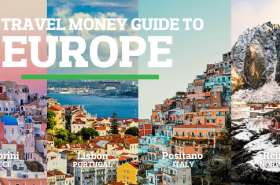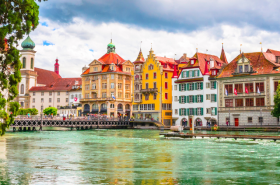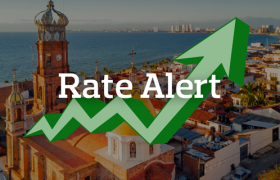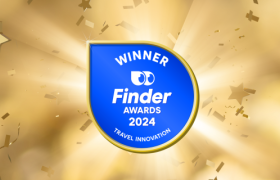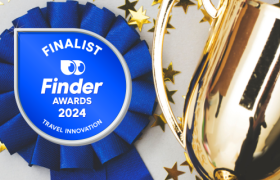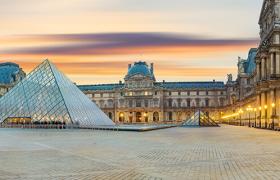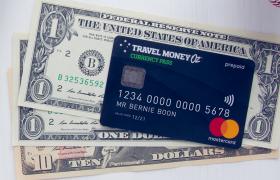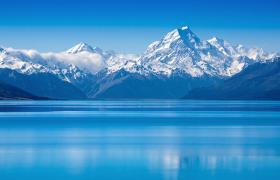Canada, the land of perfect ski slopes, unlimited poutine and wombat’s long-lost cousin, the beaver. Planning a Canadian adventure is incredibly exciting, especially when it comes to choosing the perfect accommodation, planning your day trips and sussing out the best places to eat your bodyweight in pumpkin spice and Montreal smoked meat (perhaps not at the same time though). This excitement tends to dry up though when it comes to the dreaded B-word - budget.
Why can’t we just book our holidays and let a magical fairy accountant deal with the budget? How is a humble traveller that is exploring a great land for the first time meant to know what goes into a budget for Canada?
Well, we’ve got some good news and some bad news. Good news is we have the solution to your budget woes in the form of our holiday budget planner. Bad news is it isn’t a magical fairy accountant, but rather some high-tech software that crunches data from Numbeo and our foreign exchange rates to spit out your holiday budget.
Close enough to magic if you ask me. Before we dive into the budget planner though, let’s chat about the components of a Canadian holiday budget.
What goes into a budget for Canada?
Every travel budget is unique to the traveller. Some like to travel in luxury and spare no expense, others take the road less travelled in seek of new adventures and cheaper prices. However, regardless of your travel style, everyone faces a few core expenses.
Transport
Flights are a necessary evil, especially for Aussie’s. Depending on your final destination, your Canadian flights can take anywhere between 14 and 24 hours - the Pacific ocean is surprisingly large. With this in mind, you’re flights will often be the largest chunk of your holiday budget.
Once you arrive in Canada you’ll have a few transport options. If you’re staying in a city, public transport is definitely your easiest and most affordable option. However, if you’re planning on exploring a bit further afar, car hire, trains (hello Rocky Mountaineer) and domestic flights are your best bet. If you’re looking to save money, car hire might be your best bet. However, if you don’t have much time on your hands a flight is the way to go. Just remember Canada is similar to Australia in that it is HUGE, so cross country travel can definitely add up.
Accommodation
The CAD and AUD are relatively on par. I say relatively because their value fluctuates, but you can rest assured that the exchange rate is far more forgiving than say the USD or GBP.
With this in mind, accommodation expenses are relatively similar to what you would expect to pay in Australian cities. Hostel- hoppers and villa-lovers alike will find accommodation to match their tastes and budgets.
Tip - In Ontario, everyone calls a holiday house a cottage. So, if someone recommends you a great cottage, rest assured it won’t be a dilapidated little shack in the countryside.
Food
There are a few things to remember when it comes to budgeting food (and everyday costs) in Canada.
-
The price you see on the menu is not the final price you pay as you’ll need to add tip and tax. The tax amount on all goods and services (like our GST) is not included in the marked price and varies between states.
-
Tipping is a necessary evil for most service related purchases. At a bar and restaurant between 10% and 20% is standard depending on the quality of the service. It certainly is an art, though, so don’t be afraid to ask for advice on where and when you need to tip.
-
Like Australia, the price of food varies between big cities and smaller towns - a standard supermarket shop will cost more in Toronto then it would in a smaller city like Halifax. Make sure you account for this when planning your holiday and creating a budget.
-
Mountain pricing is a thing. If you are hitting the slopes and staying in a ski village, be prepared to pay more for everything. Mountains incur more costs because they are harder to get to, and they don’t have as many competitors so retailers and restaurants can charge more without worrying about losing business.
These points aside, Canada has a vast array of food options. While being heavily influenced by their American neighbours, bigger cities are hotspots for immigration and, as a result, boast an eclectic food scene.
Activites
Canada has a lot to offer for every budget. Love the outdoors? Spend next to nothing hiking, bear spotting and exploring. Prefer to shop? Top up your Travel Money Oz Currency Pass and get ready to shop ‘till you drop.
If you are skiing, however, make sure you account for extra expenses such as mountain passes and equipment hire.
Pre-departure expenses
Regardless of what you plan on doing, travel insurance is a must. If you are skiing, make sure your policy covers you for snow sports as well.
You’ll also need a Canadian Visa, which costs $7 CAD and is valid for five years.
How much does a Canada Trip cost?
Que our holiday budget planner a.k.a. Magic fairy accountant.




